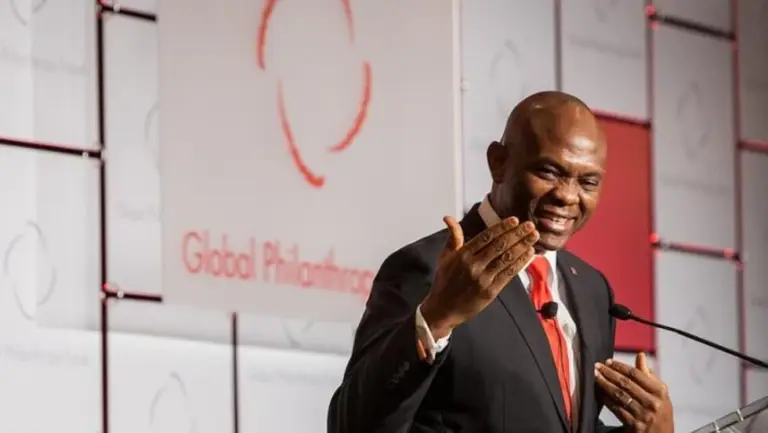At the crossroads of technology and finance, one Nigerian voice stood out among global power players at this year’s Future Investment Initiative (FII) in Riyadh.
Tony O. Elumelu, Chairman of Heirs Holdings and United Bank for Africa (UBA), didn’t just join the conversation on artificial intelligence — he reframed it around a continent often overlooked in the race toward digital supremacy: Africa.
While the rest of the world debates automation, data ethics, and AI scaling, Elumelu brought the dialogue back to the fundamentals — electricity, access, and equity.
For him, the future of AI in Africa will not be written in code alone, but in power grids, broadband cables, and inclusive finance.
The Missing Link in Africa’s AI Dream
On stage alongside global banking executives like Jane Fraser (Citi), Jenny Johnson (Franklin Templeton), and Bill Winters (Standard Chartered), Elumelu’s message was strikingly direct:
“You cannot talk about the Fourth Industrial Revolution when over 600 million Africans still live without electricity,” he said.
The acclaimed investor’s point was simple but profound — technology without infrastructure is illusion.
Artificial intelligence may be reshaping global markets, but in much of Africa, it remains a concept constrained by energy poverty and weak investment pipelines.
“The data-driven future the world envisions depends on power,” Elumelu explained. “Without reliable access to electricity, Africa’s digital transformation will remain a promise unfulfilled.”
From Financial Markets to Foundational Change
Elumelu, known for his “Africapitalism” philosophy — the idea that private enterprise must drive social and economic change — urged investors to redirect capital towards Africa’s most urgent need: infrastructure financing.
He emphasized that financial inclusion, infrastructure, and innovation form a single ecosystem. Without the first two, the third cannot thrive.
“Access to infrastructure is critical,” he told delegates. “Capital for that infrastructure is scarce, yet it is the foundation upon which sustainable prosperity will be built.”
In his view, AI adoption cannot simply be imported into Africa; it must be enabled — through local investment, sustainable power systems, and equitable access to digital tools.
Democratizing Artificial Intelligence
Beyond the economics, Elumelu called for AI democratization — ensuring that Africa isn’t left behind in the global knowledge revolution.
While advanced economies race toward autonomous systems and quantum computing, many African innovators still battle basic connectivity barriers.
“We must democratize access to AI,” Elumelu urged. “True global prosperity will only come when every region — especially Africa — can participate fully in the digital economy.”
His statement underscored a broader global challenge: how to ensure technological equity in an era dominated by data giants and algorithmic powerhouses.
Africa’s New Frontier of Investment
Behind Elumelu’s advocacy lies his own expanding footprint in emerging sectors.
Through Heirs Holdings, he has diversified investments beyond finance into energy, real estate, and technology ventures — signaling confidence in Africa’s long-term growth story.
His investments in renewable energy, digital platforms, and infrastructure projects mirror his public message: that economic inclusion begins with access to power, connectivity, and opportunity.
Industry observers say his expanding portfolio places him among a new generation of African business leaders — visionaries blending profitability with purpose.
A Continental Vision Shared
Elumelu’s remarks resonate with fellow African trailblazers like Strive Masiyiwa, founder of Econet Group, who has long championed the continent’s digital transformation.
Together, they represent a rising class of entrepreneurs redefining Africa’s role in global innovation — not as consumers, but as co-creators of the digital future.
Their shared belief: Africa’s greatest potential lies not in its natural resources, but in its human capital — waiting to be powered, connected, and unleashed.
The Takeaway: Africa at the Table, Not on the Sidelines
From Riyadh’s high-level boardrooms to the streets of Lagos and Nairobi, Elumelu’s message echoes a new kind of urgency.
AI is no longer a distant frontier — it is here, and Africa must not be left behind.
But to get there, the continent must light its cities, fund its innovators, and open its data highways.
Only then can the promise of artificial intelligence evolve from conversation to transformation.
“When we invest in Africa’s infrastructure,” Elumelu concluded, “we are not just powering machines — we are powering people, progress, and the prosperity of generations to come.”

